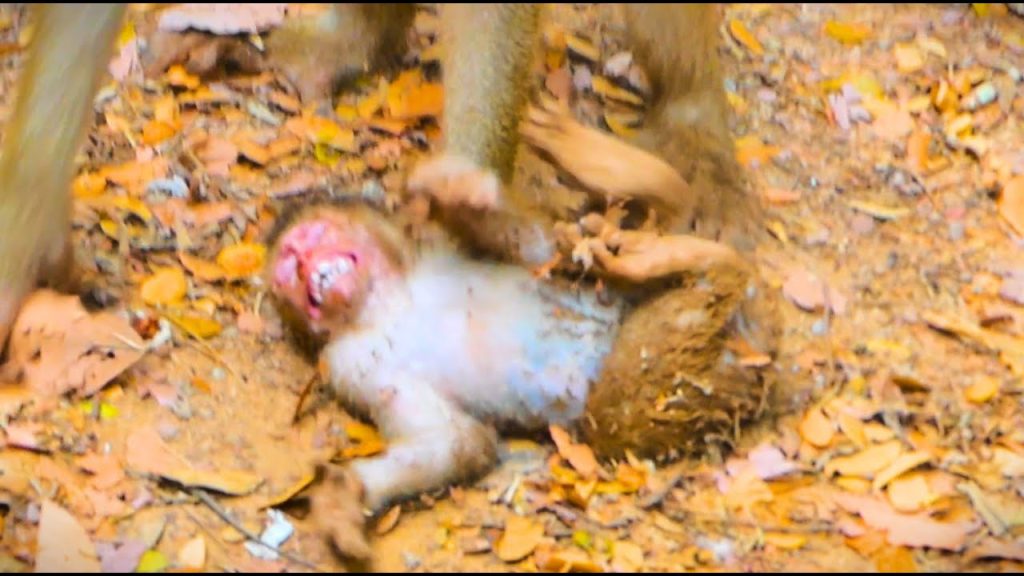
In the shade of a tall fig tree, the monkey troop settled for a mid‑day rest. Baby Leo, barely a few months old, was restless, tugging at his mother’s tail and climbing over her back while she tried to groom herself. Twice she pushed him aside with a warning grunt, but Leo only squeaked and pulled harder, eager for play.
A third time, he nipped at her arm. That was the breaking point.
With a sudden, furious shriek, his mother swung her arm and struck Leo hard across the shoulder. He tumbled off the branch, hit the packed earth below, and lay stunned—tiny limbs sprawled, breath shallow. The troop went silent. Even the chatter of distant birds seemed to stop.
For a moment it looked as if Leo might not move again.
Other adult females approached, lips smacking nervously. One low‑ranking aunt scooted close, sniffing Leo’s head, but backed away when the mother glared. The tension in the air was thick; discipline in monkey society can be harsh, yet this blow had crossed a dangerous line.
After long seconds, Leo’s chest rose and fell with a shaky breath. He whimpered softly, then tried to pull himself upright, only to collapse once more. His mother descended, now visibly anxious. She hovered, touching his back with trembling fingers. Realizing the severity of what she’d done, she began to lick his fur rapidly, a frantic apology in grooming form.
Gradually Leo stirred. He pressed his face into her belly, still weak, eyes half‑closed. She curled her body around him, shielding him from the curious troop. Through slow, careful licks and soft grunts, she comforted her injured baby.
It would take hours before Leo could climb again, and days before he’d trust his mother’s embrace fully. But beneath the sorrow of that violent moment, life still clung to hope—rising and falling with each fragile breath in his mother’s protective arms.


